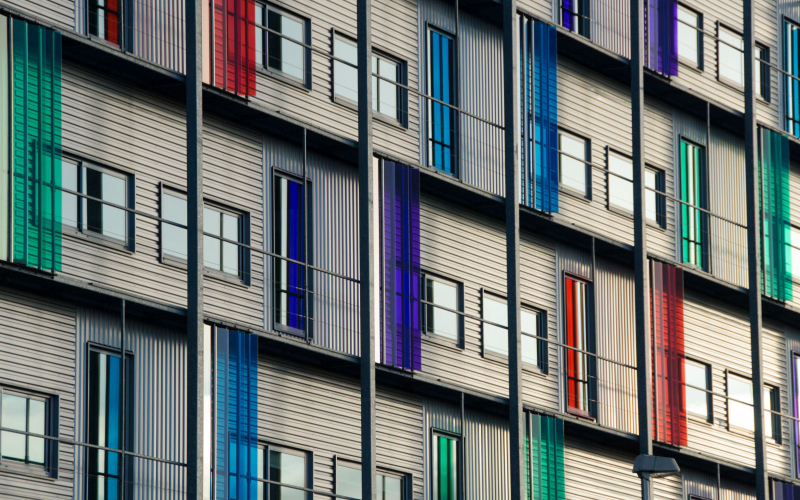Here are Some Reasons to Own Rental Properties (and Why You Shouldn’t)
Have you been thinking about reasons to own rental properties? Here are some pros and cons.

Getting into the real estate market is a good way to set yourself up for your future and to help build wealth. But deciding to get into real estate is only the first step – you need to then work out exactly what your investment strategy is. Some will say that you are best to be a passive investor and invest in trusts. Some will say to buy land and commercial properties. And some will swear that rental properties are what made them successful and brought them wealth. So, should you own rental properties, and most importantly, is it worth it for you?
Different strategies in real estate investing
If you want to enter the real estate market, there are some different strategies that you can look at. Each will have its pros and cons and what is the best strategy for one person is not necessarily the best for another. The three main strategies include the following:
Fix and flip
- Purchasing a property on the cheap, renovating it and reselling it for profit.
Passive investing through syndicates and trusts
- Similar to a mutual fund. You invest money and rather than owning a single property, your investment will be spread among a number of smaller investments.
Rental properties
- Investing in rental properties is quite broad. You could live in a property and rent out a single room or part of a house. Or purchase an apartment building and rent out each unit separately. Or have a single-family home and search for a long-term (or short-term) tenant to provide rental income.
No matter which strategy you choose, there is the potential for long-term wealth generation. But there are also risks for each one. Renting out properties is a very common strategy. Chances are that you yourself have been a tenant at one point in your life. So it is understandable why going the rental property route is popular with a lot of investors.
What is a rental property exactly?
A rental property is any property that is owned by you and rented out to generate income. A rental property could be any form of property – a freestanding house, a duplex, an apartment, or part of a home. All you need to do is look at the rental listings and you will see that at any one time in any location there are countless rentals up for grabs. And these rentals are all owned by an investor who is looking for a tenant to live in the property and pay for the privilege. Kiplinger estimates that 47% of current rentals are owned by individual investors.
What are the features of a good rental property?
If you are wanting to get into the rental market you will want to be on the lookout for properties that have certain features that make up a good rental. Fortune builders list some features to look for when considering a rental property.
Location
- Location is a huge deciding consideration for how much potential tenants are willing to pay for a rental. You may have found the perfect home, but if it is in an undesirable location, then you will have trouble finding tenants. Look at current rental prices to get an idea. Considerations include schools and transportation options, as well as crime information.
Growth potential
- One of the important parts of investing in real estate is to have any assets you own to grow in value. So ensure any property you purchase will provide positive cash flow over the years.
The property itself
- This includes the property condition. When you are searching for a rental property, imagine yourself living there. If you would not feel comfortable with a family member living in a property, how can you expect a future tenant to? A good rental property needs to be in good, livable condition. Also not need too much expensive renovation or maintenance.
Pros and cons of rental properties
Rental properties are not a guaranteed success, and you must consider the pros and cons before you go ahead with a purchase. The Simple Dollar highlights the main pros and cons as being the following.
Pros
- Consistent and reliable income is the number one reason why investors choose rental properties. Get yourself a good tenant and you can sit back as the rental income flows in. You will still be paying a mortgage, but you can at least use some of the rental income to pay these costs. So in a way, the tenant is paying the mortgage for your house!
- Property Value Growth. Rental properties just like any property will likely grow in value over the years. So, you can purchase a property, receive rental income for a few years, and then sell it when the market is high for what can be a large profit.
Cons
- High cost. Houses are expensive, and rental income only begins once the house is purchased. So, you will need to have some start-up capital on hand in order to purchase the property. Lenders will also consider rental properties to be higher risk, and as such mortgages on these properties will generally come with higher interest rates than if you were to purchase a property to live in.
- Tenant risk. Not all tenants are desirable, and oftentimes you will only know you have a bad tenant once they have done damage or fallen behind in rent. There is also a risk in not being able to find a tenant or having to reduce the rent so that the income no longer covers your costs.
Conclusion
Not all properties will make a good rental investment, so you need to make sure you consider all of these factors when looking at a potential rental investment. There is no denying that many people have found huge success with investing in rental properties, so if it is done right, then they are definitely a good strategy and worth it. They also have the potential to end up costing more money than they are worth if the wrong property is purchased or if it is not managed properly.







